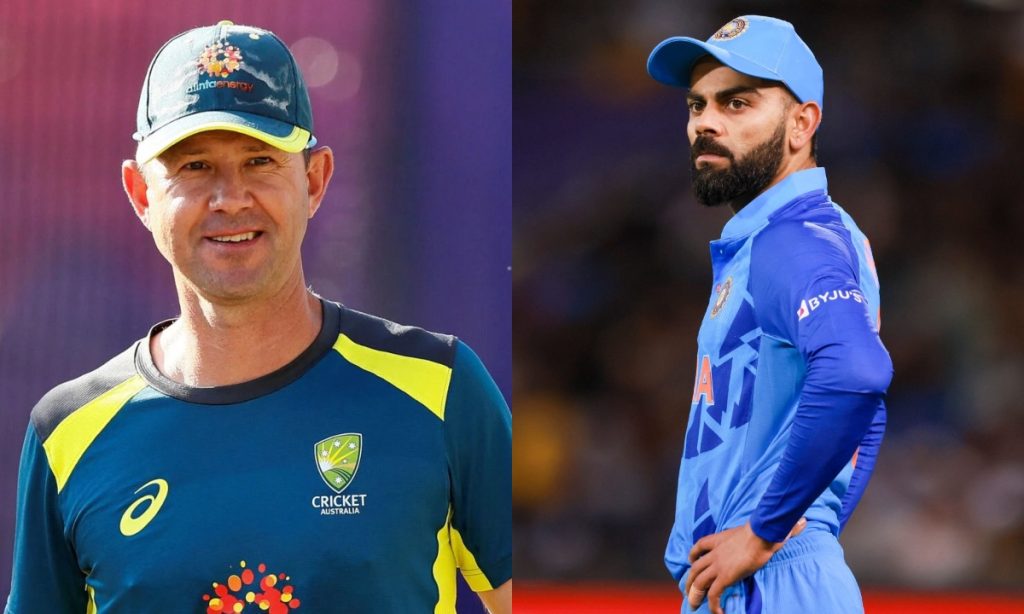In a move that has cricket enthusiasts buzzing, Ricky Ponting, one of cricket’s most celebrated figures, has revealed his all-time XI without including the modern-day maestro, Virat Kohli. This decision, while surprising to many, offers a deep dive into how legends view the game’s evolution and the criteria they employ for such selections.
The Selection Criteria:
Ponting’s choice not to include Virat Kohli might seem baffling at first, given Kohli’s staggering statistics and impact on the game. However, Ponting’s XI was likely crafted with an eye on versatility, adaptability, and perhaps, a touch of personal bias or experience. Virat Kohli, known predominantly for his batting prowess, might not have fit into Ponting’s vision of a balanced team where players could contribute in multiple facets of the game. This approach might favor all-rounders or players who’ve shown exceptional performance across formats and conditions, rather than just pure run-scoring ability.
The Lineup:
- Justin Langer and Matthew Hayden: Opening the batting, Langer and Hayden form a formidable duo known for their resilience and ability to set a solid foundation. Langer’s grit and Hayden’s power set the tone, ensuring the team gets off to a strong start.
- Jacques Kallis: As the anchor in the middle order, Kallis brings stability with his dual prowess in batting and bowling. His consistency and ability to adapt to any situation make him an invaluable asset.
- Sachin Tendulkar and Brian Lara: These two maestros need no introduction. Tendulkar’s technique and Lara’s flair provide the team with unmatched batting depth, capable of turning any match with their sheer class.
- Kumar Sangakkara (c): Captaining this side, Sangakkara’s calm demeanor and strategic acumen would be crucial. His leadership, combined with his elegant batting, makes him the perfect choice to lead this ensemble of stars.
- Adam Gilchrist (wk): Gilchrist’s inclusion not only strengthens the batting but also brings dynamism to the wicket-keeping role. His aggressive approach redefined the role of a wicket-keeper batsman.
- Shane Warne: The spin wizard, Warne’s selection is a testament to his ability to bamboozle batsmen with his leg-spin, often turning matches single-handedly.
- Wasim Akram: Akram’s left-arm pace, combined with his swing and seam, offers a different dimension to the bowling attack, making him one of the most feared bowlers in history.
- Curtly Ambrose and Glenn McGrath: These two fast bowlers, known for their accuracy and ability to demoralize batting line-ups, complete a bowling attack that’s both varied and lethal.
Strategic Insights:
Ponting’s selection isn’t just about assembling the best players but crafting a team that can dominate across formats and conditions.
- Adaptability: Each player in this XI has shown the ability to adapt, whether it’s to different pitches, formats, or eras of the game. This reflects cricket’s evolution and the need for players to be versatile.
- Balance: The team balances aggression with stability, power hitters with accumulators, and pace with spin. This balance ensures that the team can respond to any match situation.
- Leadership and Team Spirit: Sangakkara’s captaincy choice highlights Ponting’s belief in leadership that fosters team spirit and strategic play, crucial for a team of such individual talents.
- Mental Toughness: Every player here has a record of performing under pressure, a quality Ponting values highly, reflecting cricket’s mental as well as physical challenges.
Leadership and Team Dynamics:
Another angle could be Kohli’s leadership style. While Kohli’s passion and intensity have been both his strength and criticism, Ponting might prefer a captain or player whose leadership fosters a different team dynamic, possibly one that’s less confrontational or more strategic in its approach. This doesn’t diminish Kohli’s leadership but highlights differing philosophies on what makes a great captain or team player.
Ricky Ponting’s exclusion of Kohli has ignited discussions on what truly defines an all-time great. Is it sheer volume of runs, the manner of scoring, or the ability to adapt across formats? Kohli’s record speaks volumes, yet cricket, like any sport, is subjective. Ponting’s choice might be seen as a testament to cricket’s depth, where even the greatest can be debated upon.
Ricky Ponting’s all-time XI, without Virat Kohli, isn’t a dismissal of Kohli’s cricketing genius but a reflection of how legends view cricket’s essence. It’s a reminder that beyond numbers, cricket is about roles, balance, and sometimes, personal judgments. While Kohli’s exclusion might seem baffling, it opens up a broader discussion on what truly makes a player an all-time great in the eyes of those who’ve played at the highest level. This decision, while tough, could be pivotal in redefining how we view cricket’s legends and the criteria by which they’re judged.

